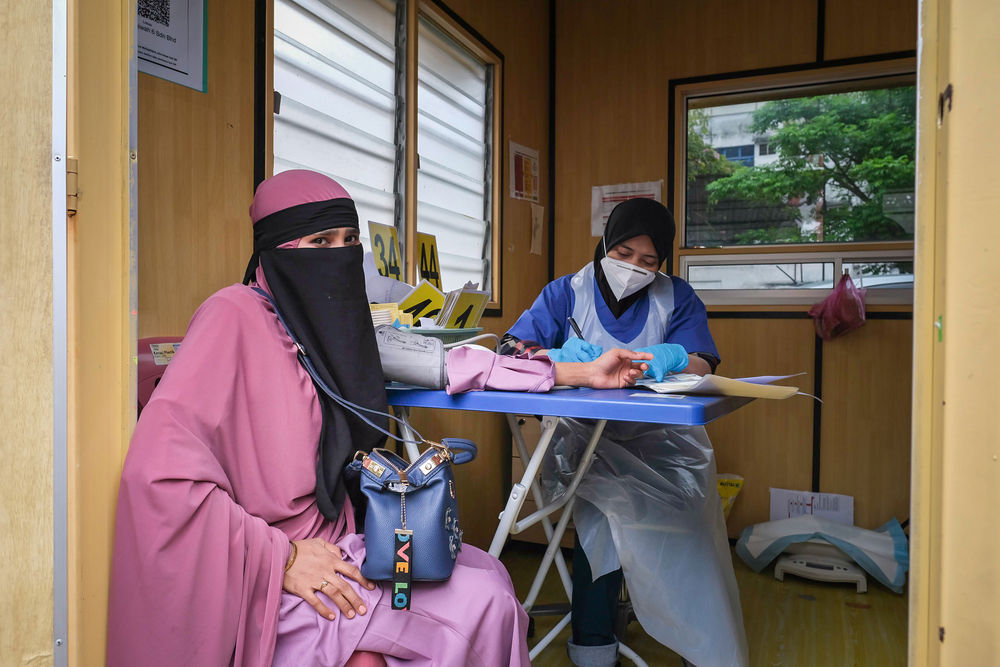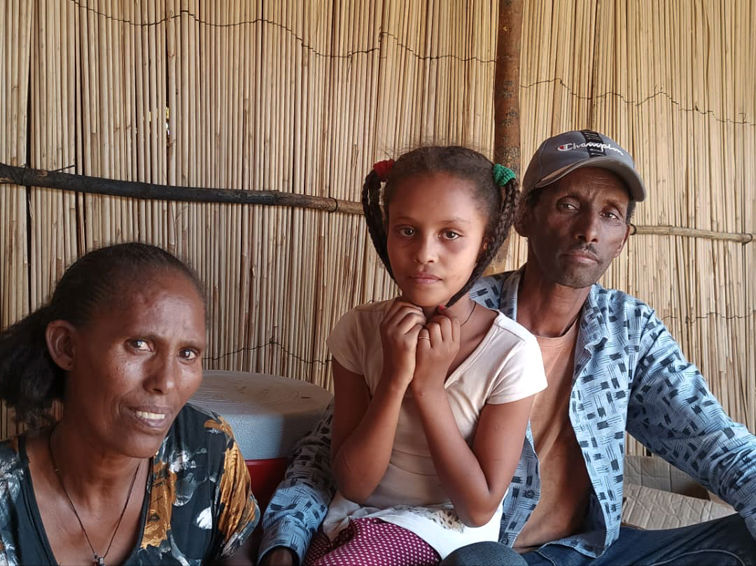Pregnant women from refugee communities in Malaysia have limited access to adequate maternal healthcare services, such as antenatal and postnatal care, skilled birth attendants, emergency obstetric care, and family planning services, which results in the high rate of maternal mortality among refugees.
According to a study by the United Nations High Commissioner for Refugees (UNHCR) in 2019*, the maternal mortality rate among refugees in Malaysia was estimated to be 62 per 100,000 live births, which is significantly higher than the national average of 36 per 100,000 live births.
The same study also found that the leading causes of maternal mortality among refugees in Malaysia were postpartum hemorrhage and hypertensive disorders. Concerningly, there is no updated available data since 2019, and from what we witness in our clinics, there is no reason to believe the situation among this group has improved.
Lack of legal status limits access to healthcare
Malaysia is not a signatory to the 1951 Refugee Convention and does not have domestic laws recognizing and protecting refugees. This means that refugees do not have legal status in the country, which limits their access to healthcare, work and education.
Refugees registered with UNHCR Malaysia are entitled to a 50 percent discounted foreigners’ rate in public healthcare services, but most refugees still cannot afford the reduced rate fee.
Accessing private health facilities will cost a refugee between RM100 and RM500 (about HKD177 to HKD885) for antenatal or postnatal screenings, while deliveries and emergency obstetric care can cost thousands of ringgit in government and private facilities.
Nur**, a Rohingya woman who is a refugee in Malaysia and is expecting her second child, shared that she could not afford maternal healthcare at a private or public healthcare facility, as it was too expensive.
“With my husband’s income, rental and family expenses are barely covered. If we book an antenatal check-up at a private clinic, we could spend up to MYR 600 (about HKD1,062),” she said.
Threats of arrest and detention when seeking healthcare
Furthermore, the Ministry of Health’s Circular 10/2001 requires healthcare providers to report undocumented migrants, including refugees and asylum seekers, to the police or immigration services. As such, refugees who lack UNHCR documentation risk threats of arrest and detention when seeking treatment at public medical care facilities, especially when they are unable to pay medical fees, resulting in fear and distrust of public healthcare staff.
Further obstacles refugees face in accessing maternal health care are the lack of health awareness as well as the language barrier preventing many pregnant refugee women from seeking maternal healthcare, until late in the term or not at all.
To address the needs of refugees and asylum-seekers in Malaysia, Médecins Sans Frontières is providing free primary healthcare and mental health services through its clinic in Butterworth, its mobile clinics in Penang and in its activities in immigration detention centers.
MSF support to refugees in Malaysia
MSF refers patients to secondary and tertiary healthcare and supports an increasing number of sexual and gender-based violence survivors, including victims of human smuggling, both women and men. In 2022, the MSF team in Malaysia conducted a total of 4,081 sexual and reproductive healthcare consultations, including antenatal, postnatal care and family planning, at its clinic in Penang.
MSF also refers unregistered refugee patients with heightened medical or protection needs to UNHCR for expedited registration to facilitate their access to healthcare.
“The number of sexual and reproductive health consultations carried out by MSF clinic staff doubled from 200 consultations per month early in 2022 to some 500 consultations per month by the end of the year,” says Dirk van der Tak, MSF’s head of mission in Malaysia.
“This could be an indication of greater awareness of sexual and reproductive health services offered by MSF among refugee women but could also mean the need for access to adequate maternal healthcare services for refugee women continues to increase.”
Healthcare services must be made more inclusive for refugees
“There is still a high number of consultations for late-in-term pregnancies we see in our clinics. Additionally, in the first quarter of 2023, around 15 percent of our consultations were related to teen pregnancies, which continues to be a concern as adolescent mothers are at greater risk of complications such as eclampsia (life-threatening high blood pressure in pregnancy), anemia, or increased risk of adverse outcomes such as premature birth or stillbirth. We know that the number of girls we see at the clinic is likely only a fraction of those in need of services.”
While the number of antenatal consultations has increased in MSF’s clinics, this is only a small number of women who have accessed the services they need, compared to the overall reproductive health needs of all refugees in the country.
“There are 183,790 refugees and asylum-seekers registered with UNHCR in Malaysia as of the end of January 2023, including 34 per cent women. Many more refugees in the community are struggling to access basic healthcare. Services should be made more inclusive for refugees to ensure they have access to safe, adequate and affordable maternal healthcare.” he added.
* UNHCR titled "Maternal Health Among Refugees and Asylum-Seekers in Malaysia: An Assessment of Policies, Services and Barriers." The report was published in June 2020.
** Name of patient changed to protect her identity
Médecins Sans Frontières (MSF) has provided primary healthcare, mental health services and response to sexual and gender-based violence for refugees and asylum-seekers in Malaysia since 2015. In 2018, MSF established a fixed clinic in Butterworth, which currently assists approximately 900 to 1,000 patients every month.



